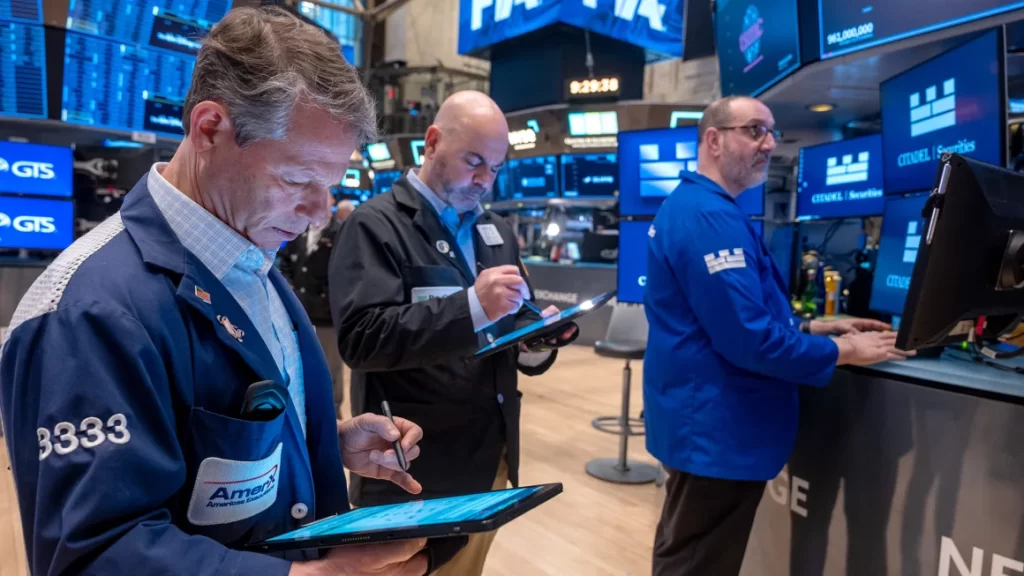April 2 as a kind of tariffs Super Bowl, during which all of his many promised import taxes will go into effect. But as he has demonstrated many times before, Trump once again appears to be offering a lot of hype and little action.
Trump administration officials are trying to tamp down expectations that every pledged tariff action will go into effect April 2, Bloomberg and the Wall Street Journal reported this weekend. Instead, a significantly reduced batch of tariffs will be announced next week, and more could follow later, although both reports said the situation remains fluid and the ultimate decision could change.
US stocks were higher Monday on the reports, as investors were relieved that the most punishing tariffs may not be coming as soon as many on Wall Street had feared. The Dow was up 530 points, or 1.27%. The broader S&P 500 rose 1.6% and the Nasdaq Composite gained 2%.
Trump has repeatedly proclaimed next Wednesday to be “Liberation Day,” bringing massive reciprocal tariffs that match foreign countries’ import taxes dollar for dollar. He was also set to enact twice-delayed 25% tariffs on all goods imported from Mexico and Canada after briefly allowing them to go into effect earlier this month. And Trump had promised tariffs on a wide variety of goods imported from anywhere, including autos, pharmaceuticals, microchips, copper, lumber and other products.
Now, it seems, those product-specific tariffs will not be enacted April 2, according to the Journal and Bloomberg. As for the 25% tariffs on Mexican and Canadian goods, it’s unclear whether they will take effect or be further postponed.
A White House official told CNN that no final decision have been made, and tariffs on various sectors and industries may or may not be announced April 2.
Reciprocal tariffs will go into effect – perhaps as soon as April – but they will be limited to a dozen or so countries, Bloomberg and the Journal reported. The countries that first face the reciprocal tariffs will perhaps be the 15% of nations that Treasury Secretary Scott Bessent, speaking on Fox Business last week, labeled “the Dirty 15” – countries that he says persistently treat the United States unfairly in their trading practices.
Although tariffs on those partners could cover the majority of goods coming into the United States, the more targeted approach nevertheless represents a significant pullback from some of the harshest tariffs Trump had promised.
The administration has been setting the stage for a walkback for days. Trump in the Oval Office Friday hinted that his administration would allow for “flexibility” on tariffs – the first sign of potential exemptions after he had pledged there
Trump’s Tariff ‘Super Bowl’? Promises Scaled Back, Expectations Softened
Keep Reading
Add A Comment



